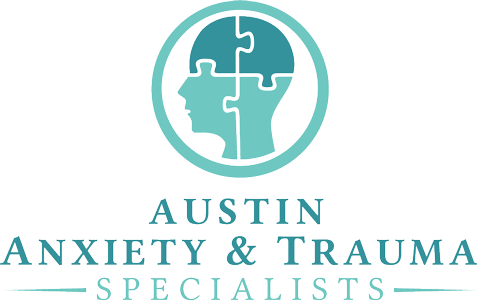In recent years, the term “neurodivergent” has gained traction online as an empowering concept that celebrates the variations in human cognition. It represents a shift towards embracing neurodiversity and recognizing the inherent value of diverse neurological experiences.
Let’s define just what it means to be neurodivergent. A neurodivergent is an individual who thinks, perceives, learns, and interacts with the world differently than what is considered “typical,” or neurotypical. Neurodiversity encompasses a spectrum of neurological conditions and cognitive differences that make each individual’s experience unique.
In this article, we will delve into the world of neurodivergence, exploring the spectrum of neurodivergent traits, understanding the challenges, recognizing strengths, exploring different types of neurodivergence, discussing self-advocacy and support, and highlighting the benefits of therapy in navigating your journey.
The Spectrum of Neurodivergent Traits
Neurodivergent traits encompass a broad spectrum of neurological conditions and variations. Each individual’s experience of neurodivergence is unique, but there are common characteristics that can be observed. These traits can include differences in information processing, sensory perception, social interaction, and communication. It is important to recognize that neurodivergent traits are not deficiencies but rather different ways of experiencing and navigating the world.
Challenges and Strengths of Neurodivergent Individuals
Neurodivergent individuals face a unique set of challenges, particularly in education, the workplace, and social settings. In educational environments, they may encounter difficulties with traditional teaching methods and require accommodations to support their learning needs. Similarly, in the workplace, challenges can arise due to differences in communication styles, sensory sensitivities, and executive function skills. However, it is crucial to acknowledge and harness the strengths and talents that neurodivergent individuals possess, such as exceptional attention to detail, creativity, analytical thinking, and unique problem-solving abilities.
Common challenges of neurodivergence may include:
- Sensory sensitivities or overstimulation in response to certain sounds, textures, or environments
- Difficulty understanding social cues or maintaining conversations
- Executive dysfunction, including difficulties with organization, time management, and task initiation
- Discomfort adapting to changes
- Specific learning differences that may impact reading, writing, or mathematical abilities
- Speech and language conditions, like stuttering or repeating sounds or words
- Repetitive behaviors or rituals that serve as a way to manage anxiety or bring comfort
Some strengths of neurodivergence are:
- Unique patterns of thinking and problem-solving approaches
- Intense focus and deep interests in specific subjects or areas (also called “special interests”)
- Non-linear or divergent thinking, resulting in creative and unconventional ideas
- Heightened sensitivity to emotions, to their own and/or others’
- Strong adherence to routines (or the opposite could be true: difficulty keeping routines)
- Exceptional attention to detail and the ability to notice patterns that others may overlook
- Hyperfocus on tasks or activities of interest, sometimes to the exclusion of other responsibilities
Though there are many common themes in neurodivergence, these traits can vary widely among individuals, and not everyone will experience all of them. Additionally, neurodivergents may possess a unique combination of strengths and challenges that make their experiences truly set apart.
Read: Music Festivals for Neurodivergents: 6 Soothing Tips to Avoid Overstimulation
Types of Neurodivergence
Neurodivergence encompasses various neurological conditions and differences. Some of the commonly recognized neurodivergent conditions include:
Autism
Autism, or Autism Spectrum Disorder (ASD), is a neurodevelopmental condition characterized by differences in social interaction, communication, and repetitive behaviors. Autistic individuals often have intense interests in specific subjects and may experience sensory sensitivities.
ADHD
Attention-Deficit Hyperactivity Disorder (ADHD) is a neurodevelopmental disorder characterized by inattention, hyperactivity, and impulsivity. People with ADHD may struggle with maintaining focus, organizing tasks, and regulating their impulses.
Dyslexia
Dyslexia is a learning difference that affects reading and language processing. Individuals with dyslexia have problems decoding, spelling, and reading, but their abilities are unrelated to intelligence, hearing, or vision.
OCD
Obsessive-Compulsive Disorder (OCD) is a condition characterized by intrusive thoughts (obsessions) and repetitive behaviors (compulsions). People with OCD may engage in ritualistic behaviors to alleviate anxiety or prevent perceived harm.
Other Conditions
Neurodivergence extends beyond the above examples and includes other conditions such as Tourette syndrome, dyspraxia (difficulty with coordination), and specific learning disabilities, among others. Each condition brings its own unique set of strengths and challenges.
Read: ADHD and Anxiety: Why They Often Occur Together and How to Cope
Navigating Neurodivergence: Self-Advocacy and Support
Have you been wondering, “Am I neurodivergent?” If so, seeking an official diagnosis from a professional can be a transformative and even empowering journey. A therapist can also equip you with strategies for self-care and self-advocacy. By learning to communicate your needs, seek accommodations, and access appropriate support systems alongside professional treatment, you can navigate the challenges you encounter effectively.
Remember, you are not alone on this journey. Embrace your unique neurodivergent self, celebrate your strengths, and find joy in the beautiful diversity of the human mind. Take the next step towards empowerment and schedule an appointment with a therapist who can provide the specific support you need to thrive.
Book your session with us at Austin Anxiety and Trauma Specialists and we’ll match you with a trained professional who can best help you manage anxiety, panic, self-esteem, and symptoms that may be related to your condition. It can get better. We can help.






